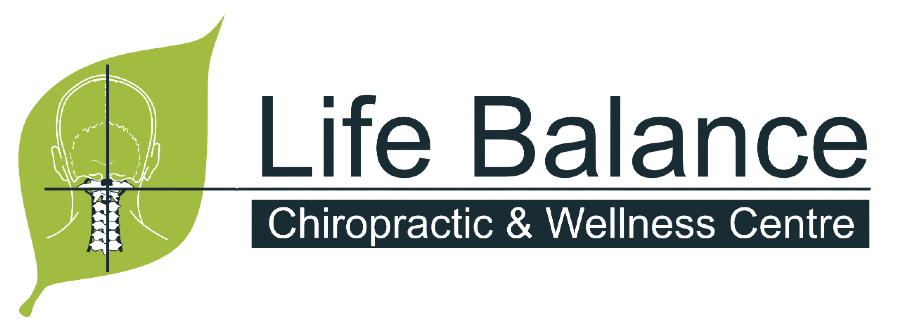Do you find yourself wincing every time you take a bite of your favorite food? Does your jaw click or pop so often that it’s become part of your daily routine? Are headaches, neck tension, or facial pain turning ordinary days into exhausting battles?
If you’ve been dealing with TMJ pain, you know how it can affect every corner of your life—from enjoying a meal to simply getting a good night’s sleep. While TMJ issues often stem from structural or muscular problems, everyday habits might be silently making things worse.
The good news? These habits are within your control, and with a few mindful adjustments, you can reduce strain on your jaw and take steps toward lasting TMJ relief in North York ON. Let’s explore the top 5 lifestyle habits that could be aggravating your TMJ symptoms and what you can do to change them.
Key Takeaways: Things That Keep You From Finding North York ON TMJ Relief
- TMJ Pain Can Be Triggered by Everyday Habits: Habits like clenching your jaw, poor posture, and chewing tough foods can silently worsen TMJ symptoms.
- Correcting Misalignments Is Key: Upper cervical chiropractic care can address the root cause of TMJ pain by realigning the atlas bone and restoring balance to your jaw and neck.
- Personalized, Holistic Care Works Best: Combining chiropractic adjustments with lifestyle changes—such as stress management and better sleep habits—supports long-term North York ON TMJ relief.
1. Clenching and Grinding: The Silent Culprit
Do you wake up with a sore jaw or notice yourself clenching your teeth when you’re stressed or focused? Teeth grinding, also known as bruxism, often happens at night or during stressful situations. It creates tension in your jaw muscles and puts extra pressure on your TMJ, leading to pain, headaches, and even tooth damage.
What You Can Do:
- Throughout the day, check in with yourself. Is your jaw tense? Relax it by keeping your lips closed and your teeth apart.
- Wear a custom night guard to protect your jaw from grinding while you sleep.
- Reduce stress with calming activities like yoga, deep breathing, or journaling to interrupt the cycle of tension.
2. Poor Posture: The Hidden Trigger
Have you ever noticed how your body feels after hours of hunching over your phone or computer? Poor posture doesn’t just affect your back—it places stress on your neck and shoulders, which are directly connected to your jaw. Over time, this misalignment can make TMJ pain worse.
What You Can Do:
- Set up your workstation ergonomically by positioning your screen at eye level and using a chair that supports your lower back.
- Take regular breaks to stretch and move. Focus on releasing tension in your neck and shoulders.
- Chiropractic care can help address long-term postural issues that contribute to TMJ pain.
3. Overworking Your Jaw: Everyday Habits Adding Up
Do you chew gum throughout the day? Do you bite your nails when you’re stressed? Are you guilty of regularly eating tough or chewy foods? These habits seem harmless but can overwork your jaw, intensifying TMJ symptoms like pain and stiffness.
What You Can Do:
- Switch to softer foods during TMJ flare-ups and cut harder items like apples or bagels into smaller pieces to make chewing easier.
- Avoid gum chewing and replace it with sugar-free mints or hydration to keep your mouth occupied.
- Be mindful when yawning—support your jaw and avoid forcing it open too wide.
4. Sleeping in the Wrong Position: A Nighttime Aggravator
Do you wake up with jaw pain, stiffness, or headaches? Your sleeping position might be the culprit. Sleeping on your stomach or using an unsupportive pillow can strain your neck, leading to misalignment that contributes to TMJ pain.
What You Can Do:
- Sleep on your back with a pillow designed to support your neck and keep it aligned with your spine.
- If you prefer side sleeping, ensure your pillow fills the gap between your shoulder and head for proper support.
- If jaw or neck pain persists, consider seeing our chiropractor for TMJ in North York to address underlying alignment issues.
5. Stress: The Sneaky Driver of TMJ Pain
Does stress leave you feeling tense or on edge? It’s not just an emotional burden—it often shows up physically as jaw clenching, neck tension, or grinding. This ongoing strain can escalate TMJ symptoms and create a cycle of pain.
What You Can Do:
- Dedicate time each day to stress-relief practices, whether that’s a walk, deep breathing, or listening to relaxing music.
- Practice progressive muscle relaxation to consciously release tension in your jaw and neck.
- Chiropractic care can complement your stress management by relieving physical tension and supporting your body’s balance.

Find TMJ Relief in North York with Dr. Siqueira
TMJ pain can feel isolating, frustrating, and at times, overwhelming. But it’s important to know that you don’t have to face it alone. At Life Balance Chiropractic & Wellness Centre, we’re here to walk alongside you on your journey toward relief, providing compassionate care and empowering you with tools to reclaim control over your health and well-being.
Our approach is rooted in uncovering the root cause of your discomfort—not just masking the symptoms. TMJ pain often stems from subtle misalignments in the upper cervical spine, particularly the atlas (C1) bone. These misalignments can disrupt the delicate balance of your jaw, neck, and nervous system, leading to the pain, clicking, and tension you’ve been experiencing.
Through gentle, precise upper cervical adjustments, we aim to correct these misalignments and restore your body’s natural balance. These adjustments aren’t one-size-fits-all—they’re tailored specifically to your needs, using advanced techniques to ensure accuracy and comfort.
But chiropractic care is only one part of the equation. We also focus on helping you adopt healthier habits that support your recovery and prevent future flare-ups. From posture tips to stress management strategies, our personalized care plan is designed to address not just your pain but your overall well-being.
With the help of North York TMJ chiropractic care, you can find lasting relief, regain your quality of life, and empower you to live each day without the limitations of jaw pain.
Take the First Step: Book Your Consultation with Our TMJ chiropractor in North York
TMJ pain doesn’t have to define your life. With the right care and guidance, you can break free from the cycle of discomfort and rediscover the ease and joy of everyday moments—eating, laughing, and sleeping soundly.
TMJ Relief begins with one decision to put your health first. Schedule a consultation with Dr. Siqueira today to explore how chiropractic care can unlock the path to lasting comfort and healing. Together, we’ll create a personalized plan that addresses your unique needs and helps you achieve a life free from the limitations of TMJ pain. Unlocking natural relief for TMJ in North York is closer than you think—let’s take that step together.

FAQs on Lifestyle Habits, TMJ Pain, and North York TMJ Chiropractic Care
Could clenching my teeth during the day actually be causing my TMJ pain?
Yes, clenching your teeth is one of the most common contributors to TMJ pain. It places constant tension on your jaw muscles and joints, leading to soreness, headaches, and even long-term damage if left unchecked. Try checking in with your jaw throughout the day—keeping your teeth slightly apart and your lips relaxed can help reduce strain.
I’ve noticed my posture isn’t great. Could that affect my jaw?
Absolutely. Poor posture, like slouching or craning your neck forward, creates tension in your neck and shoulders, which are closely connected to your jaw. Over time, this strain can exacerbate TMJ pain. Improving your posture can significantly reduce this added pressure on your jaw. This is where our TMJ chiropractor in North York can help. Sometimes, posture issues can stem from underlying issues like an atlas subluxation. It would be best to schedule your consultation to determine if you need an adjustment.
Can stress make my TMJ symptoms worse?
Definitely. Stress often causes clenching, grinding, and muscle tension in the jaw and neck, which can aggravate TMJ symptoms. Incorporating stress-relief techniques like deep breathing, yoga, or journaling into your routine can help ease the tension and reduce pain.
I’ve been biting my nails for years. Could that be affecting my TMJ?
Yes, habits like nail biting can place repetitive stress on your jaw, contributing to pain and stiffness over time. Breaking the habit can reduce unnecessary strain and help your TMJ joint recover.
How does the atlas bone affect my TMJ pain?
The atlas, the top bone in your neck, is critical in supporting your head and balancing your jaw. When it’s misaligned, it can strain the muscles and nerves connected to your TMJ, worsening symptoms like jaw pain, clicking, and stiffness.
Could a past injury to my neck be causing my TMJ symptoms now?
Yes, even old injuries like whiplash or a fall can shift your atlas out of alignment. This misalignment can affect the nerves and muscles connected to your jaw, leading to TMJ pain that might show up months or even years later.
How do I know if my TMJ pain is related to an atlas subluxation?
If your TMJ symptoms are accompanied by neck pain, headaches, or a history of neck trauma, it’s worth investigating an atlas misalignment as a potential cause. Our chiropractor for TMJ in North York, Dr. Siqueira, can evaluate your neck alignment to determine if it’s contributing to your jaw pain.
Can fixing my posture or habits really make a difference in my TMJ pain?
Yes! Small changes like improving your posture, reducing jaw overuse, and managing stress can significantly reduce TMJ pain. When combined with chiropractic care to address deeper issues like atlas misalignment, these adjustments can provide lasting TMJ relief in North York ON.
To schedule a consultation with Dr. Siqueira, call our North York office 888-702-9621. You can also click the button below.
If you are outside of the local area, you can find an Upper Cervical Doctor near you at www.uppercervicalawareness.com.


